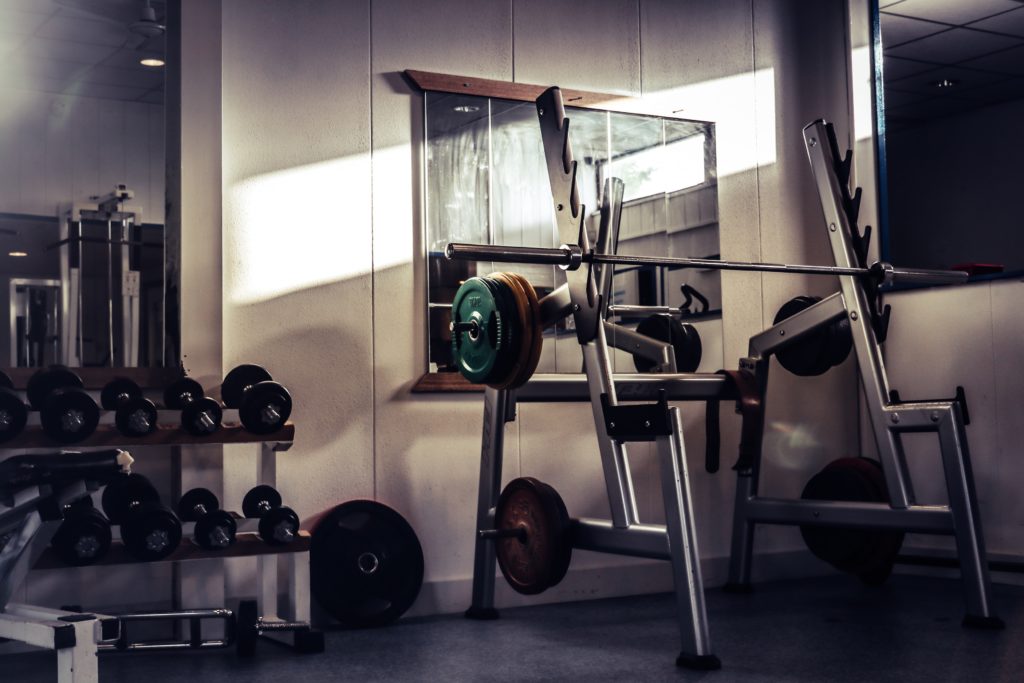
You’ve had a few days on the first exercise machine—the Scripture—and if you’ve been diligent, you may have some sore muscles, ones you haven’t exercised in a while. Good for you.
What’s the next exercise machine?
Recall that we’re finding New Testament uses of the word grace where the context indicates that the word is speaking of spiritual strength, and where there’s some sort of practice indicated that builds up the grace.
Our second passage is probably familiar to you; it’s commonly included in Bible memory programs.
Therefore let us draw near with confidence to the throne of grace, so that we may receive mercy and find grace to help in time of need (Heb 4.16).
We see the word grace there. Is it a reference to spiritual strength? Since the verse ends with a reference to “help in time of need,” it seems to be in the neighborhood.
Is there an associated exercise? Well, we all know what “the throne of grace” is; perhaps your pastor begins his public prayer with the phrase, “Let’s all go before the throne of grace.” If he does, he’s getting the phrase from this verse. The context confirms that he’s right to see the phrase as a reference to prayer—we have a great high priest (Heb 4.14) who is sympathetic to our needs (Heb 4.15), so we ought to bring our requests to him in confidence (Heb 4.16).
Prayer.
I’ve noticed something over the years.
In my travels, particularly in developing countries, I’ve noticed that believers there seem to have a vibrancy and urgency and passion in their prayers that just doesn’t seem to happen much here in the States.
Why do you suppose that is?
Are Americans just not as emotional as other cultures?
The Super Bowl is a week from Sunday. I don’t think emotional coldness in the culture is the problem.
This is just my opinion, but I suspect that there are two characteristics of American culture that suppress our prayer life—
First, we’re rich.
You may not think you’re rich, but you are, comparatively speaking. If you have a place to live, and food to eat every day, you’re in better shape financially than a great swath of others on this planet.
And when your needs are not urgent for the continuation of your life—today—you don’t feel the kind of urgency in prayer that a great many people do. For most of us, if we really need something, we can just go out and buy it. A can of beans. A box of rice. Something to drink.
We may not be satisfied or content, but we’re not desperate either.
If your church still has Wednesday night prayer meeting, I suspect there’s a pattern there. What are most of the requests about?
Health. And especially cancer.
Why? Because we can handle most of the other stuff—or we think we can.
I’m not criticizing prayer for healing; I’m observing that in our culture, there’s relatively little that we really feel the need to pray about.
The second characteristic of American culture that suppresses our prayer fervency is one that might surprise you.
We’re free.
We talk about persecution of Christians in the US, but relatively speaking, we have it remarkably easy. When we gather, we don’t have to fear that the cops are going to show up, bust up the place, and ship us all off to the gulag.
I’ve been in places where that was a real possibility. It’ll change the way you pray.
So what do we do about all this? Seek poverty? Give up our freedom?
Of course not. For one thing, that would violate the biblical principle of stewardship, and for another, our freedom was purchased at great cost by brave men and women over the centuries; I’m not going to squander it.
But we do need to rise above our culture to see our genuine need, and to bring those needs humbly but confidently before the throne of grace. We need to pray as though it matters, because it does.
We need to put some weights on the machine.
Photo by Jelmer Assink on Unsplash

Cathy says
My husband and I have been poor. Not knowing when and where the next meal was coming from with 5 children depending on us. Having the water shut off because we couldn’t pay the bill. We know what urgent prayer is. We never starved and God always provided. He still does.